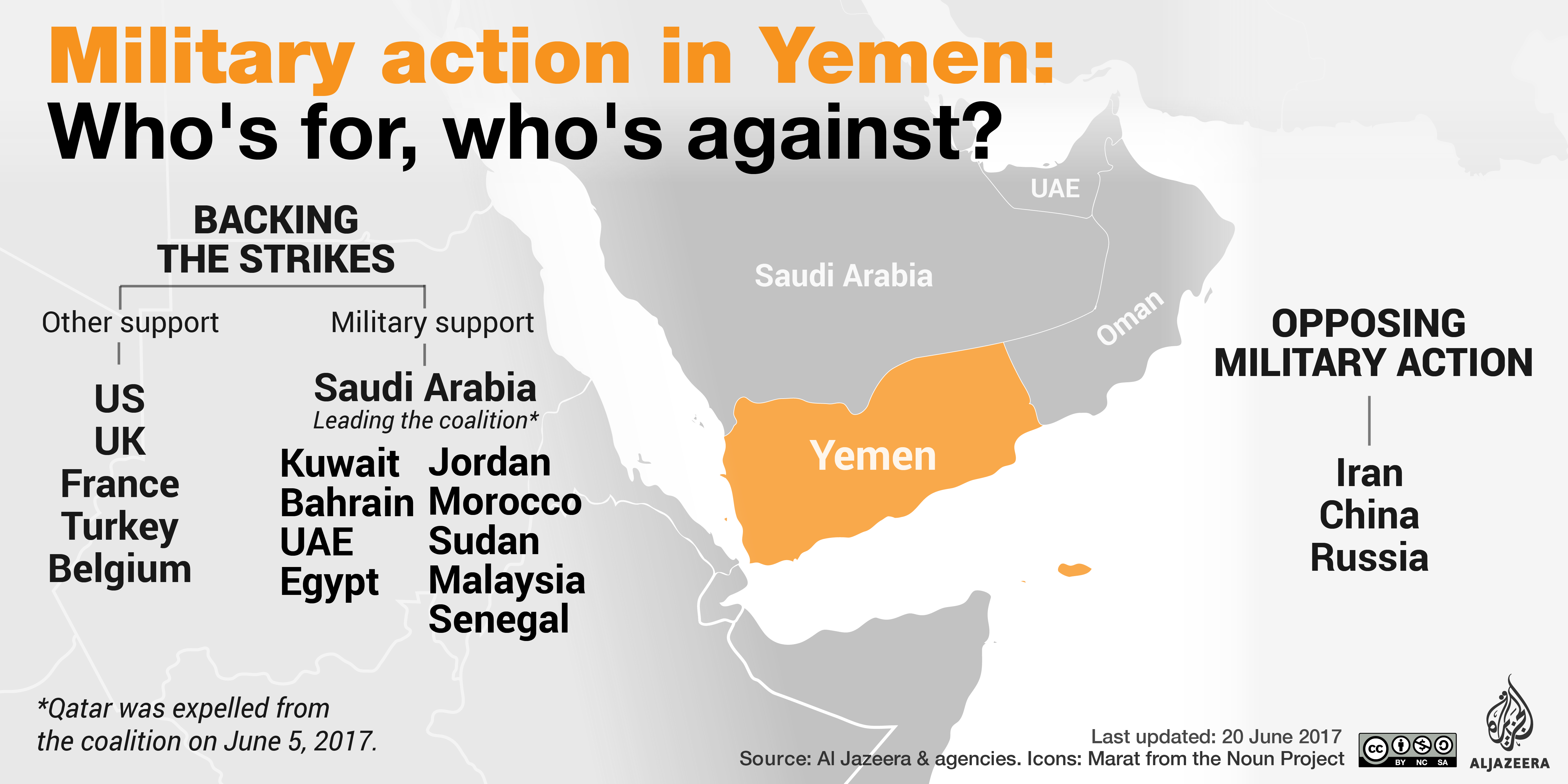UN blacklists Saudi-led alliance for Yemen child deaths
Saudi-led alliance added to the UN chief’s annual list of shame for killing and maiming 683 children during 2016.

The United Nations has added a Saudi-led military coalition to a blacklist of child rights violators for causing the deaths and injuries of hundreds of children in war-torn Yemen.
The alliance, assembled by Saudi Arabia in 2015, was added on Thursday to the UN chief’s annual list of shame for killing and maiming 683 children and for 38 verified attacks on schools and hospitals during 2016.
|
|
The UN annual report on children in armed conflict noted, however, that the coalition had “put in places measures during the reporting period to improve the protection of children”.
The blacklist also named the Houthi rebel group – also shamed last year – as being responsible for the killing or maiming of 414 children.
In total, the document highlights the killing of 502 Yemeni children. It also says that 838 children were wounded in 2016.
The blacklist also named Yemen government forces, pro-government militia and al-Qaeda in the Arabian Peninsula for violations against children in 2016 – as it also did in last year’s report.
The report from UN Secretary-General Antonio Guterres was submitted to the Security Council.
In a statement, released along with the report, Guterres said the blacklist was “not only to raise awareness” but also to “promote measures that can diminish the tragic plight of children in conflict”.
2016 controversy
The coalition was the only side in Yemen’s war that was left out of last year’s report.
Though it had initially been placed on the 2016 report, it was later “temporarily” removed by then-UN chief Ban Ki-moon, who cited “unacceptable” pressure by the Gulf countries, including threats by Saudi Arabia to cut funding to the UN. Saudi Arabia denied threatening to cut off of humanitarian funding.
Ban described his decision to remove the coalition off the list as one of the most “painful and difficult,” but stood by his choice warning that “millions of other children would suffer grievously” in places such as Palestine, South Sudan and Syria if funding were cut.
OPINION: Will seven million starving Yemenis ever find justice?
In mid-August, following the leaking of the report obtained by Al Jazeera, the Saudi UN Mission said “there is no justification whatsoever for including its name in the annex of the Secretary-General’s report on children and armed conflict […] we trust that the UN will make the appropriate decision on this matter” in a statement.
Yemen has been engulfed in a bloody civil war since September 2014 after Houthi rebels captured the capital, Sanaa, and overthrew President Abd-Rabbu Mansour Hadi‘s government.
More than 10,000 have been killed, and three million have been displaced from their homes.
Additionally, more than 17 million people in Yemen are facing food shortages; the UN warns that the country is on the brink of famine with 80 percent of the country’s children in desperate need of aid.

Parties listed in the report are not subjected to UN action. But the report, which was produced by Virginia Gamba, shames those listed in hope of pushing them to implement measures to protect children.
Before the report’s submission to the Security Council, rights groups warned against the removal of the coalition from the list once again.
READ MORE: UN agrees to send war crimes investigators to Yemen
“All groups working on children’s rights in Yemen and around the world would be very, very disappointed if, for the second year running, despite clear patterns of grave violations, the party is removed from the list,” Caroline Anning, senior advocacy adviser on Yemen for the UK-based Save the Children NGO, told Al Jazeera from London.
“All sides in Yemen have shown a complete disrespect for the protection of children. We’ve seen a situation in which the world’s worst humanitarian crisis has been created as a direct result of the war – the cholera epidemic, the hunger crisis; it’s all a result of the conduct of the warring parties.”
|
|